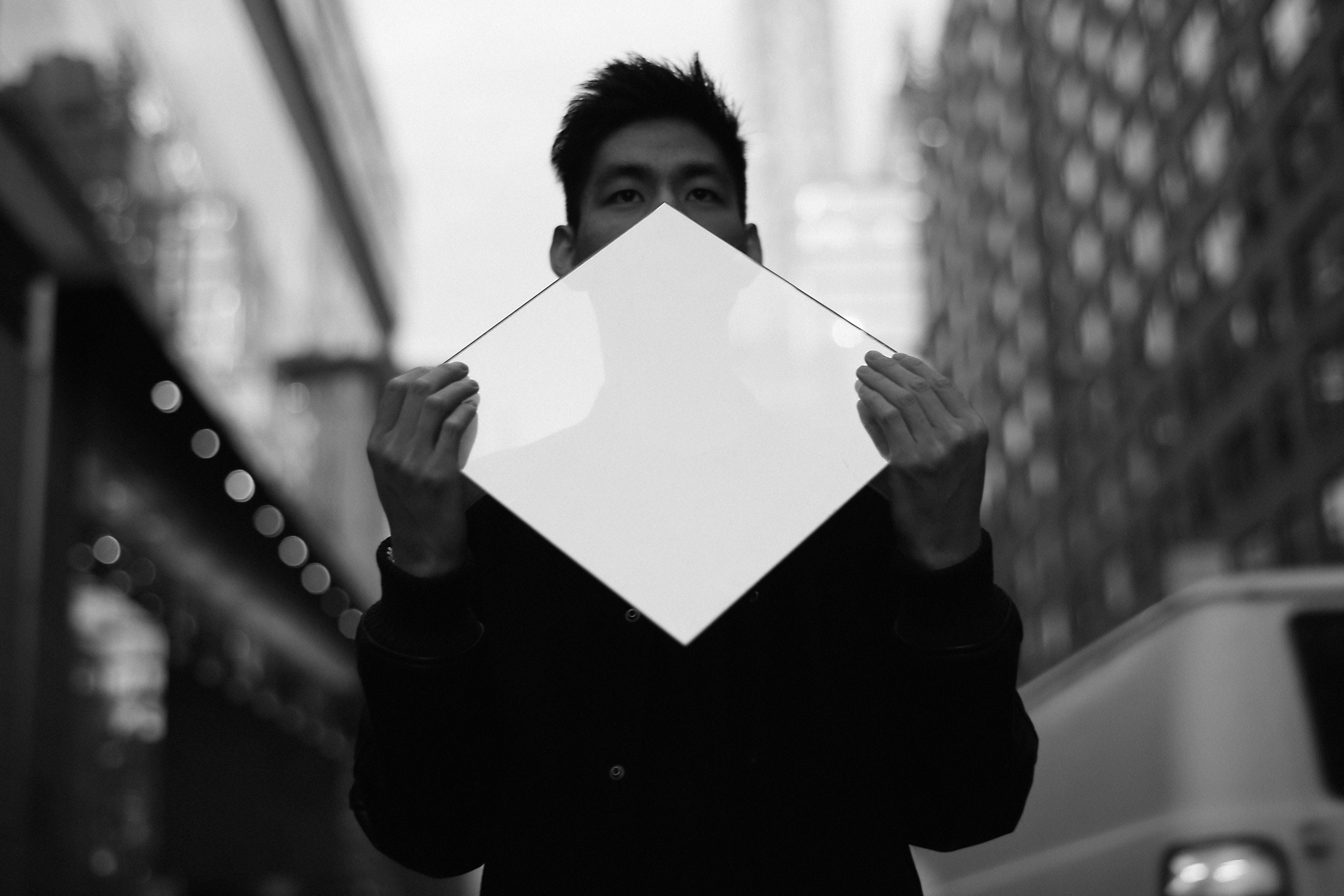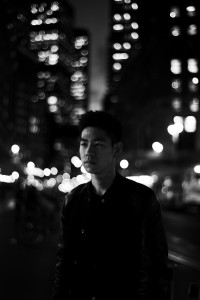Being Burglarized with Nosaj Thing

Jason Chung, who runs under the moniker Nosaj Thing, is a DJ, producer and generally prominent figure of the LA beat scene. Chung persevered through a rough patch last year, after his gear was robbed mid-tour while he promoted his then-upcoming album, Fated.
Two years’ worth of work – gone. Still, that wasn’t going to stop him.
With new gear and sound – Chung released his new EP No Reality on April 8, which features five formidable tracks that continue to conjure the ethereal mood of deep space, but simultaneously evoke healthy head-bobs and body movements. He will embark on an audio/visual tour, beginning this weekend at Coachella, in collaboration with Japanese artist Daito Manabe. According to Chung, this one goes out to his “A1 Day 1 supporters.”
Interview transcription below:
Kayla: Hi, Jason! This is Kayla from KCPR, it’s so nice to meet you!
Jason: Hi, Kayla. How’re you doing?
Kayla: I’m well! How are you?
Jason: I’m good, got back to LA yesterday.
Kayla: From Japan, right?
Jason: Yeah, it’s good to be back.
Kayla: How was Japan?
Jason: Really good. I was there to work on the new live show –
Kayla: For the audio/visual tour, right?
Jason: Yeah. I was there to program the show and sync up with the team.
Kayla: I wanted to start by asking – what was the creative vision behind making “No Reality?” What was the conception of the name?
Jason: It was a big change for me because last year when I was on tour, our tour van got broken into. All of our equipment was stolen. I actually lost two and a half years of work; I was pretty depressed for a few months, but [I] got over it. And you know in the end, it was kind of liberating because I had to change my approach. I got different tools this time and changed up my sound. In the end, I kind of saw it as an opportunity.
Kayla: That’s awesome!
Jason: Yeah, and this time around I had a lot more fun making this EP. I made it pretty quickly, too. So, it didn’t really give me that much time to overthink anything. I felt like it was more natural: the process. And as far as the name “no reality [goes],” the word “reality” kept popping into my head and all these things just kept happening –it just popped up in my head and [I] just went with it.
Kayla: The approach for this one is really different, but do you find that it was overall it was really cherishing for you as an artist?
Jason: Definitely. I feel like my last three records were more personal, and definitely more therapeutic for me, and I’ve just been DJing more the past couple years. That influenced me to make something more up-tempo, especially when playing live. Those last two records didn’t really translate for me ‘cause they were really down tempo. I’m ready for that change.
Kayla: Yeah, that’s awesome! I think we’re all ready for it, too. I’m really excited for this [upcoming] tour and No Reality. [I’ve] been bumping that everyday since it came out.

Jason: Thank you so much.
Kayla: So you’ve mentioned that your first three albums are more on the personal side. How would you describe the emotions behind those albums and how do they compare to those in No Reality?
Jason: Yeah, you know the album process is a lot different from the EP process. So, with my albums – hold on let me get out of here…there’s like a whole crew of motorcycles that just passed by –
Kayla: No way! [both laugh] In their Harley Davidsons?
Jason: Yeah yeah, sorry what was that again?
Kayla: So you’ve mentioned that your first three albums are more on the personal side, and I just wanted to know how you would describe the emotions behind your albums and how do they compare to those in No Reality?
Jason: OH okay. So with the album process it takes about a year or two. How I compile the work, I’ll just make sketches every day – kind of like writing in a diary. And then I’ll just – it’s kind of like tearing out pages of [the diary] and compiling pages together without much thought. It just comes together. In that process – I think for anything – even like writing a book or whatever, it just kind of tears yourself apart in the process. Especially when you’re working on something solo, after a while you just feel kind of crazy. And this time around with the EP, it was a really quick process. I pretty much finished the whole EP in like less that three weeks and that’s why it was more fun. Typically, you turn in an album about four or five months before it comes out, and this time around I turned in the EP about three weeks before it came out. Usually, you’ll just get kind of forget about it by the time it comes out and you’re in a different place. So, it was kind of refreshing to me that it came out so quickly.
Kayla: I’m really glad you had fun with this process. This is exciting stuff that you’ve put out. So, I was also wondering what are some creative materials you tend to draw from? Literature, art, dreams maybe?
Jason: This time around it was my friends and just people I meet, that influences me the most and usually I’m kind of a hermit, and I’ll just stay at home, but something just flipped in the last couple years and I’ve just been open in going out more and being more social and stuff. I feel like it made a good impact on me.
Kayla: I’m glad to hear that. So, how do you feel about No Reality in comparison to your other albums in context of its sound?
Jason: No Reality is definitely more dance-y – and it’s for you guys. It’s kind of like a thank you, you know what I mean? I finished three albums and it was more personal and I wanted to make something for everyone to vibe out to.
Kayla: Definitely. Yeah, thank you so much. Much appreciated for all the work that you’ve put out really –
Jason: No, thank you!
Kayla: I was also wondering – how has living in LA influenced your music with spaces like Low End Theory, and you know, you started out at the DIY venue The Smell – and those are pretty local for me, too. I just wanted to know what that kind of influence is like for you as an artist?
Jason: Oh totally, environment changes everything. In the early days at Low End Theory, it was like a hub. It felt like a little club and every week, when Low End Theory first started, it would be at most thirty people there. Everyday I would be excited to listen to the new material from all my friends over there. Same for The Smell, I used to play on the floor. That was the thing. They didn’t really even have a table because it was mostly bands playing. So, I just started playing on the floor and at like house parties – like weird house parties. It was more like a DIY scene. But for the album, everything is kind of spread out in LA, so I just kind of got into my own zone. I feel like in LA the last couple years, the whole energy changed. There’s a lot of people moving here–from New York and San Francisco, especially. It’s too expensive there. I feel like a good energy here and a lot of things are happening. I feel like this summer is going to be really crazy. I’m pumped.
Kayla: So, I know that this [EP] along with Cold Stares from Fated includes visuals that you’ve worked on with Japanese artist, Daito Manabe. I just wanted to know what it was like to work with him and how you met him?
Jason: Yeah, so in 2009 I was working on a live show for my first album. I was doing a lot of research and I just came across Daito’s video. I reached out to him via twitter and it was actually before my first album came out. I sent him a little message like, “I love your work,” and he responded back and said the same. I was actually pretty surprised ‘cause it was before my first album came out. He’s a big music head and he’s been following the LA scene. He’s also a DJ as well. We just kept in contact since then, and just kept working together. Finally, we’re doing a show that has been in my head for about like five years, so I’m pretty excited about that.
Kayla: Yeah! We definitely are so excited for it. That’s all we have for today but thank you so much for everything and I really appreciate you calling in for this interview.
Jason: Thanks for having me!
Kayla: It was a pleasure!
Kayla Pugeda is a KCPR trainee and Cal Poly comparative ethnic studies freshman.

